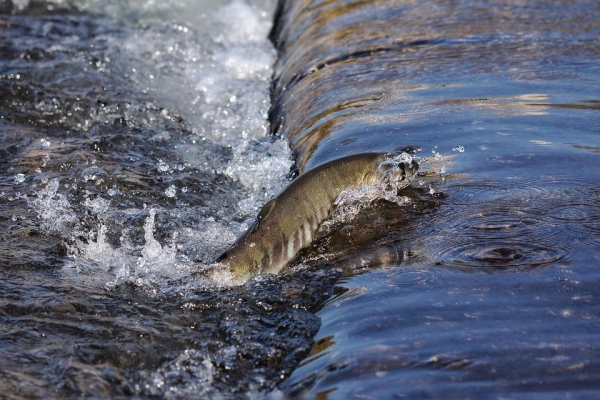Many wild salmon populations in B.C. have experienced substantial declines over the last three decades. New UBC research published today can help chart a course towards better protection of wild salmon.
Strategic Salmon Health Initiative, assessed dozens of pathogens in thousands of Chinook and Coho salmon sampled over a decade along the B.C. coast.
For the first time ever, researchers were able to identify the pathogens most closely linked to survival of free-ranging Pacific salmon in the ocean: Tenacibaculum maritimum, a bacterium that causes ulcerative disease in salmon and other cultured marine fish worldwide; and piscine orthoreovirus (PRV), a virus that causes disease in Pacific and Atlantic salmon worldwide, but whose impact on salmon in B.C. is vigorously debated.
“This is the first empirical evidence that PRV is negatively impacting wild Pacific salmon in B.C.,” says Dr. Bass, a postdoctoral researcher at UBC’s Pacific Salmon Ecology Conservation Lab. “These two pathogens are common on salmon farms in B.C., and recent studies provide evidence of transmission from farms to wild salmon.”
Read more at University of British Columbia
Photo Credit: Cock-Robin via Pixabay


